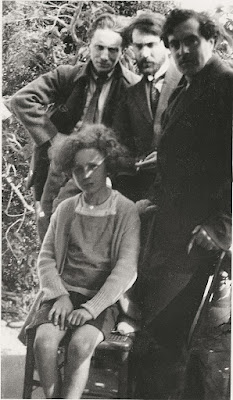THE SACRIFICE
The Sacrifice (1986, dir Andrei Tarkovsky, starring Erland Josephson, Susan Fleetwood)
I went to the Arsenal in Potsdamer Platz on Monday 12th of July to see the former Soviet director Andrei Tarkovsky´s last film ´The Sacrifice´. It was unbelievably hot in Berlin, but cool enough in the cinema (which obviously must have been air conditioned). The programme began with a charming Tarkovsky short from his earlier period working in the Soviet Union, The Waltz and the Violin. The film demonstrates Tarkovsky´s story-telling capabilities and ability to depict character in a shorthand of disparate images. The film is not typical Soviet propaganda nonsense, but a sensitive depiction of childhood.
The main feature, Tarkovsky´s final film ´The Sacrifice´, dating from 1986, therefore wedged in between the final years of the Cold War and the beginning of the era we live in. ´The Sacrifice´ is a concoction of constricted art house pretentiousness and visionary epiphanies that aim to reveal something unbelievably important. The film is obviously influenced by the films of Bergmann and the plays of Beckett, although it seems, at times, that its just being derivative. The symbolism is so stark and refined to somehow evoke the minimalism of a play like Beckett´s ´Waiting for Godot´ yet also places itself within the context of a nuclear conflict. The pessimism is strongly contextualised, for how can a nuclear holocaust be a cause for joyful, unrestrained laughter? Alexander is a pretentious philosopher debating Nietzsche to the shrieking sound of overhead jet fighters on their way no doubt to deliver a payload of bombs. The editing is unbelievably slow paced, the delivery and pacing of the film also crawls like a snail, but sometimes to good effect. We savour the images rather than being rushed through them at express speed. We can dwell on the characters, images look sombre and somehow packed with importance. There are few close ups and many long takes. When a close up appears it seems like a portrait in miniature. Even the simplest effects in a Tarkovsky film can take on a meaning that is lost in the works of other directors.
The film is set on the Swedish island of Gotland which is interesting because Gotland still has a great deal of undiscovered history, mainly from the Middle Ages when it was the site of a protracted and very bloody battle fought at the town of Visby. The excavations from the site provide us with a unique glimpse into a Medieval battle, especially since this one was uniquely bloody and one-sided, decided ultimately by professional soldiers from the mainland, rather as Tarkovsky is the professional expelled from his native land, coming to the island of Gotland to leave his final, lasting impression of the light that surrounds us, the depth and silences within and ultimately northern lights and the darkness. But the film is mainly preoccupied with presenting an abstract, reduced portrait of anyplace that might figure as any bleak or ruined northern landscape. Instead what matters is what's happening inside the character's minds. Therefore the bleakness clearly counterpoints Alexander's disintegrating worldview as he finally sets light to his house and possessions.
Paul Murphy, Berlin

Comments